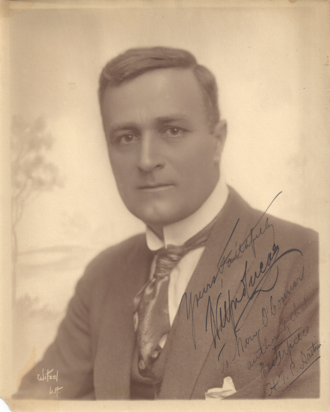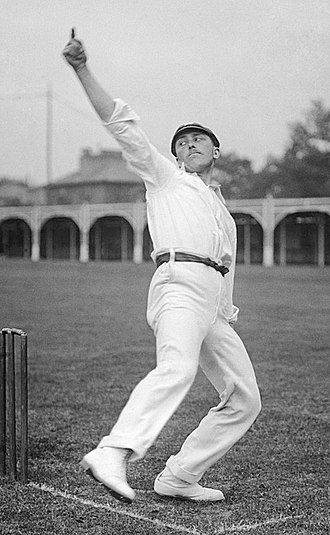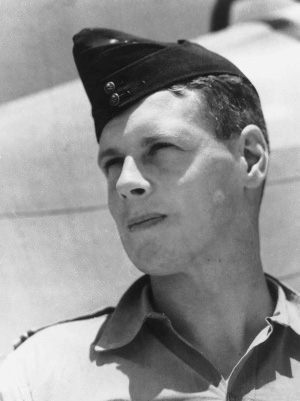Discover Your Roots
SIGN UPDiscover Your Roots
SIGN UPWilfred is a male given name of English origin, meaning "Will Peace." Derived from Germanic roots, the name combines the meanings of "will" and "peace," reflecting a strong and peaceful nature. It was particularly popular in the early twentieth century in the United Kingdom. Variations such as Wilfried and Wilfrid share the same roots and are closely related to Wilfred. The name has been borne by notable individuals across various fields, including Wilfred Owen, a renowned British poet and soldier, and Wilfred Thesiger, a distinguished British explorer and travel writer. Additionally, it has appeared in fictional settings, with characters like Wilfred Mott in the TV show Doctor Who. The name's enduring significance and positive connotations make it a timeless and meaningful choice for a male name.

Wilfred "Wilf" Mott is a beloved fictional character from the British science fiction television series Doctor Who, portrayed by the talented Bernard Cribbins. As the grandfather of Donna Noble, the companion to the Tenth Doctor, Wilf played a crucial role in the series, joining in on adventures through space and time. Known for his eccentric beliefs in extraterrestrial life and his staunch monarchist views, Wilf was proud of Donna's escapades and kept them a secret from her overbearing mother, Sylvia Noble. Originally intended for a minor role, Cribbins' character evolved into Donna's grandfather due to unforeseen circumstances and became the Tenth Doctor's final companion in "The End of Time". Wilf's character development and endearing interactions with the Doctor and Donna endeared him to fans. Bernard Cribbins reprised his role for the series' 60th-anniversary specials in 2023, with his final appearance dedicated to his memory following his passing in July 2022. Wilf's portrayal as an amateur astronomer, his poignant relationship with Donna, and his brave actions in facing the Daleks all contributed to his enduring legacy in the Doctor Who universe.

Wilfred Van Norman Lucas (January 30, 1871 – December 13, 1940) was a Canadian American stage actor who achieved success in the film industry as an actor, director, and screenwriter. Born in Norfolk County, Ontario, he later moved to Montreal, Quebec, and then immigrated to the United States in the late 1880s. Lucas initially pursued a career as a baritone singer before making a name for himself in light and grand opera. He transitioned to Broadway and later entered the film industry, making his motion picture debut in 1908. Over the course of his career, Lucas appeared in over 375 films, initially in leading roles and later as secondary and minor characters. He also ventured into directing and screenwriting, collaborating with renowned figures such as D.W. Griffith and Canadian-born director Mack Sennett.Lucas' personal life included multiple marriages and fathering several children, including John Meredyth Lucas, who became a successful writer and director. Wilfred Lucas passed away on December 13, 1940, and was interred at the Chapel of the Pines Crematory in Los Angeles. In 2023, his cremains were relocated to a publicly accessible niche in the chapel columbarium.Throughout his career, Wilfred Lucas made significant contributions to both the stage and film industry, leaving a lasting legacy in the entertainment world.

Wilfred Rhodes (1877–1973) was a renowned English professional cricketer who left an indelible mark on the sport. He played 58 Test matches for England, achieving 127 wickets and 2,325 runs. Rhodes was the first Englishman to accomplish the double of 1,000 runs and 100 wickets in Test matches. He holds world records for the most appearances in first-class cricket (1,110 matches) and the most wickets taken (4,204). Known for his great accuracy and variations in flight, Rhodes was particularly effective on wet, rain-affected pitches. His career spanned over three decades, during which he played for Yorkshire and England, impressing with his skills as both a bowler and a batsman. Beyond his on-field achievements, Rhodes was revered as an astute cricket thinker. After retiring from playing, he coached at Harrow School and was given honorary membership of the Marylebone Cricket Club (MCC). Despite losing his eyesight in later life, he remained a respected figure within the cricketing community until his passing in 1973. Born in Kirkheaton, Rhodes' dedication to cricket began at a young age, eventually leading him to a successful professional career that has left an enduring legacy in the sport.

Wilfred Graham Burchett (16 September 1911 – 27 September 1983) was an Australian journalist renowned for his groundbreaking reporting from Hiroshima after the atomic bomb was dropped and for his coverage of the Korean and Vietnam Wars from the perspective of "the other side." Burchett's career in journalism commenced during World War II, where he reported from China, Burma, and Japan, providing insights into the Pacific conflict. Notably, he was the first Western journalist to visit Hiroshima after the atom bomb was dropped, defying General MacArthur's orders. His compelling dispatch, titled "The Atomic Plague," was published in the London Daily Express, shedding light on the harrowing aftermath of the bombing.Burchett's journalistic endeavors extended to the Korean War, where he investigated and supported North Korea's claims of US germ warfare. He also secured the first Western interview with Yuri Gagarin following his historic space flight. Throughout his career, Burchett demonstrated a politically engaged and anti-imperialist stance, often placing himself amidst the people and events he reported on. His unwavering dedication to truth-telling often drew the ire of the American and Australian governments, leading to his effective exile from Australia for nearly two decades.Born in Clifton Hill, Melbourne, Burchett was influenced by his father's radical convictions and spent his youth in various Australian towns, facing financial hardships that led him to pursue odd jobs while studying foreign languages in his free time. His

Wilfred Stanley Arthur, also known as "Woof," was a distinguished fighter ace and senior officer of the Royal Australian Air Force (RAAF) during World War II. He was born in Sydney in 1919 and enlisted in the RAAF the day after Australia joined the war in 1939. Arthur saw action in the Middle East and achieved victories flying Gloster Gladiators, Hawker Hurricanes, and P-40 Tomahawks. He was known for his leadership, becoming the youngest group captain in RAAF history at the age of twenty-four. Throughout his military career, Arthur demonstrated remarkable courage and skill, earning accolades such as the Distinguished Flying Cross and the Distinguished Service Order. After the war, he pursued business interests in Australia and Vietnam before settling in Darwin, where he passed away in 2000. Despite his remarkable military achievements, Arthur's early life was humble, growing up in rural Queensland and attending the Scots College in Warwick. His dedication to the RAAF and his exceptional combat service have left an enduring legacy in Australian military history.
All images displayed on this page are sourced from Wikipedia or Wikimedia Commons.We use these images under their respective Creative Commons or public domain licenses. Wherever applicable, author attributions and license information are provided. If you believe an image is used incorrectly or outside its license terms, please contact us so that we can review and correct the issue.